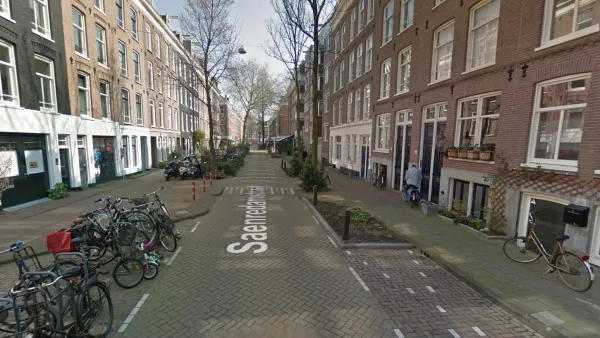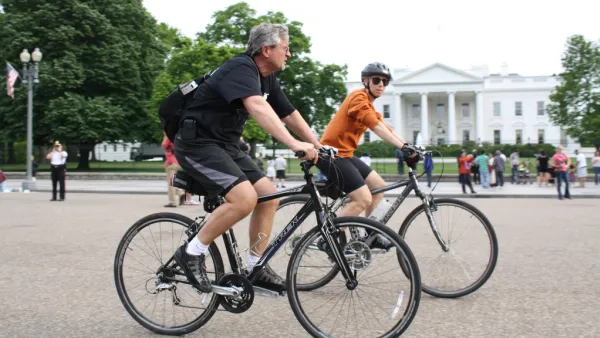As part of a broader effort to encourage less vehicular traffic city-wide, D.C. is expanding permit parking and reducing on-street parking in some of the city's most crowded neighborhoods. Not all are happy with the changes, reports Tim Craig.
In rapidly developing neighborhoods such as Columbia Heights, Adams Morgan, and the U Street Corridor, the D.C. Department of Transportation (DDOT) is eliminating half of visitor parking spaces on weekdays to make sure there is enough parking for residents. "There are only so many parking spaces on streets, and eventually there is going to be a time when the numbers don't add up anymore or demand way overexceeds supply and we have a problem," said Angela Rao, manager of the District's parking and streetlight program. DDOT is also considering community requests to extend this restriction over the weekend in congested Ward 1 neighborhoods.
Other transit changes to come include creating bicycle lanes and setting aside hundreds of metered parking spaces for the disabled. "The restrictions are a slice of a city strategy to promote bicycling and mass transit while increasing the odds that residents can find parking," explains Craig.
Concerns have been voiced by council member Marion Barry who said, "We need bike lanes, but we also need parking," and Craig points out that "the new regulations could add more confusion to the array of parking restrictions that at times baffle even DDOT officials." However, Mayor Vincent C. Gray has set a goal of having 75 percent of all trips in the city take place on foot, bicycle or public transportation by 2032. His communications director Pedro Ribeiro said, "It's not just about creating as much parking as possible. The city is growing, and if every single one of these new residents had a car, there wouldn't be enough parking for everyone, so the idea is to build neighborhoods where you don't need a car."
From the opposing view, resident Anita Taliferro Swanson and her husband Gregory Swanson doubt that the changes will improve parking problems and create walkable communities. She said, "We remember when everyone promised the construction of Metro would cause parking to get better. But how are you going to tell people in America to give up their car?"
FULL STORY: D.C. implementing parking rules to limit visitor spots, discourage driving

Analysis: Cybertruck Fatality Rate Far Exceeds That of Ford Pinto
The Tesla Cybertruck was recalled seven times last year.

National Parks Layoffs Will Cause Communities to Lose Billions
Thousands of essential park workers were laid off this week, just before the busy spring break season.

Retro-silient?: America’s First “Eco-burb,” The Woodlands Turns 50
A master-planned community north of Houston offers lessons on green infrastructure and resilient design, but falls short of its founder’s lofty affordability and walkability goals.

Test News Post 1
This is a summary

Analysis: Cybertruck Fatality Rate Far Exceeds That of Ford Pinto
The Tesla Cybertruck was recalled seven times last year.

Test News Headline 46
Test for the image on the front page.
Urban Design for Planners 1: Software Tools
This six-course series explores essential urban design concepts using open source software and equips planners with the tools they need to participate fully in the urban design process.
Planning for Universal Design
Learn the tools for implementing Universal Design in planning regulations.
EMC Planning Group, Inc.
Planetizen
Planetizen
Mpact (formerly Rail~Volution)
Great Falls Development Authority, Inc.
HUDs Office of Policy Development and Research
NYU Wagner Graduate School of Public Service



























